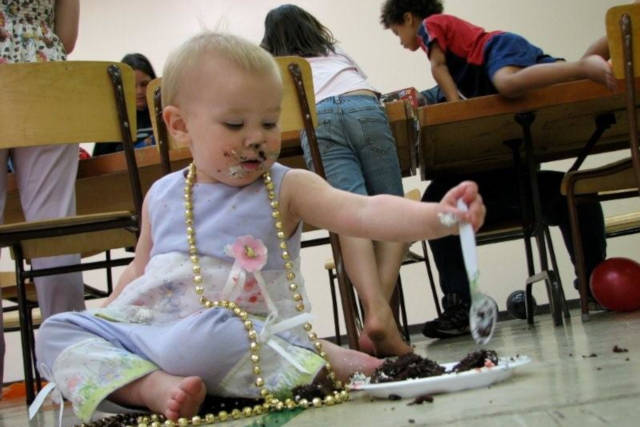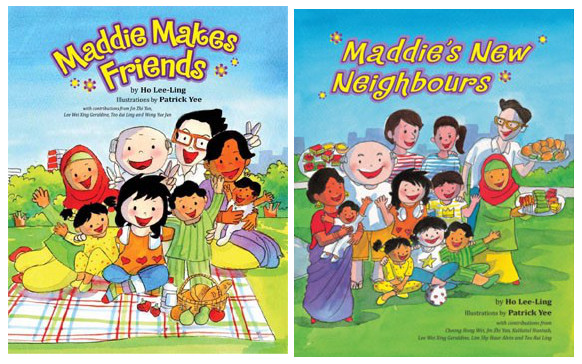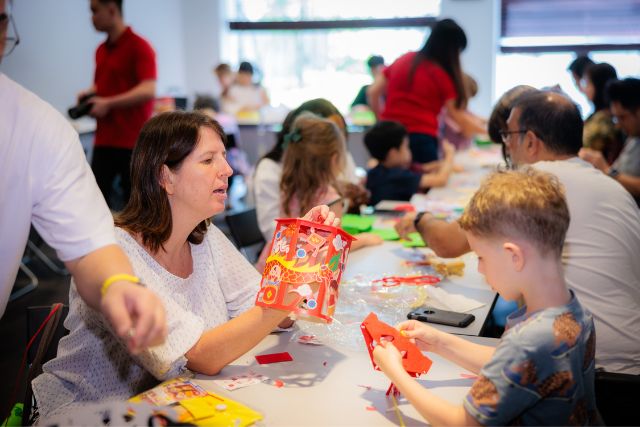Contrary to popular belief, you cannot ‘spoil’ an infant. All babies cry when they need something – they are not trying to manipulate the adults around them, but to communicate. Later on, however, it is certainly possible to spoil your child by being over-indulgent, overprotective or not setting clear and consistent boundaries. Your attention may be well-meaning, but it is unhealthy for both your child and you.

Be careful not to confuse toddler tantrums with being ‘spoilt’. All toddlers throw tantrums – it’s part and parcel of normal childhood development, during a phase when your child is gaining independence and testing boundaries, asserting their will and preferences. Just saying ‘No!’ doesn’t necessarily mean your tyke is a spoilt brat.
So how can you tell if your child is spoilt? Here are some red flags to look out for.
1. General rudeness
Is your child rude to you and others? Does he know his ‘Please’ and ‘Thank you’, and use them, if not automatically, when prompted? Is he bossing his peers around?
What you can do: Remind him of the importance of manners, and coach him in making his requests known politely and respectfully.
2. Unwillingness to share toys
Does your child never want to share his toys with others? He could be feeling insecure, afraid that others will take his toys away, and lacking the empathy and compassion to feel for the other kids.
What you can do: Help him to notice when others are wanting a toy, and to understand what they could be feeling. Instead of referring to it as ‘sharing’, teach him the concept of ‘taking turns’. This way, he’ll know he can play with the toy later on.
3. Frequent temper tantrums
The occasional temper tantrum is a norm with young kids, especially preschoolers who lack impulse control and patience – but if your child is throwing several tantrums a day, you should sit up and take notice. Does she fling herself on the floor in a rage of tears if you don’t buy her that doll she wanted? Does he kick and scream when you tell him it’s time to leave the playground?
What you can do: Give your child a heads-up what to expect ahead of time, including some ground rules and expectations of his behavior. Eg. ‘We are going to the playground for a little while before dinner. I will tell you when it is almost time to go. Then we are going back home so I can cook our dinner.’
4. Extreme dependence on caregivers or adults
If your child is perfectly capable of feeding himself but makes a big deal about having someone feed him while he plays with his iPad, chances are he is spoilt. Or if she kicks a fuss about keeping her toys because she’d much rather be doing her colouring, and you obligingly pick up her toys for her, she will become spoilt.
What you can do: Know your child’s capabilities, and consider him responsible for the things he can do, such as self-feeding, using the toilet, taking off and wearing clothes, keeping toys and books, brushing his teeth, etc. Let him know your expectations, and then stick to it consistently.
5. Only bribing works
Is the promise of a delicious dessert the only way to get your child to sit still and eat his meal? Or is the lure of a new toy the only thing that will get your child to hold your hand and walk properly with you in a shopping mall? Besides fostering an unhealthy attitude of entitlement and greed, constant bribing (we all understand the occasional one) doesn’t teach your child the inherent value of doing the right thing the proper way – it’s always a means to an end.
What you can do: Again, clear and consistent expectations are key. Don’t feel obliged to offer dessert at every meal just to get your picky eater to eat. If he misses a meal, so be it – he won’t starve. If he doesn’t want to hold your hand outside, he can jolly well stay at home until he is willing to do so.

6. Ignoring your instruction
Is she blithely ignoring your instructions to ‘Come here!’ or ‘Stop kicking the table’? Chances are she’s testing her boundaries, and you aren’t setting many limits for her.
What you can do: Explain to her that your job is to keep her safe and healthy, and to help her learn how to behave in public. You are her parent, not her friend. Let her know why it is so important that she listen to you.
7. Using ‘I need’ all the time
It’s never ‘I want’ or ‘I wish’, it’s always a NEED. It’s only natural that your child will want things as he grows up, but it’s important that he learns the difference between a ‘want’ and a ‘need’.
What you can do: Whenever your child asks for something, even something extremely valid like water, ask him if he thinks he ‘needs’ or ‘wants’ it. Eventually, he will begin to understand that certain things are necessary and important (water, toilet paper etc) while others are non-essential (chocolate, new toy etc)
8. Dissatisfaction and discontent
Is he often complaining about what so-and-so has and how old/boring/silly his current stash of toys/books/art supplies are, it sounds like he’s just not happy with his lot in life. Again, in small measures, this is perfectly normal, but if this is a recurring theme in his every day griping, you’d better nip that ungrateful spirit in the bud!
What you can do: Whenever you have the opportunity, point out to him the many things he is blessed with, such as friends, enough toys, a safe home, a happy family and the use of his legs. Share with him stories or news articles about the less fortunate, so that he begins to realize how much he already has. The antidote to a complaining spirit is cultivating a heart of thanksgiving.
By Dorothea Chow.
* * * * *
Like what you see here? Get parenting tips and stories straight to your inbox! Join our mailing list here.
Want to be heard 👂 and seen 👀 by over 100,000 parents in Singapore? We can help! Leave your contact here and we’ll be in touch.






















































